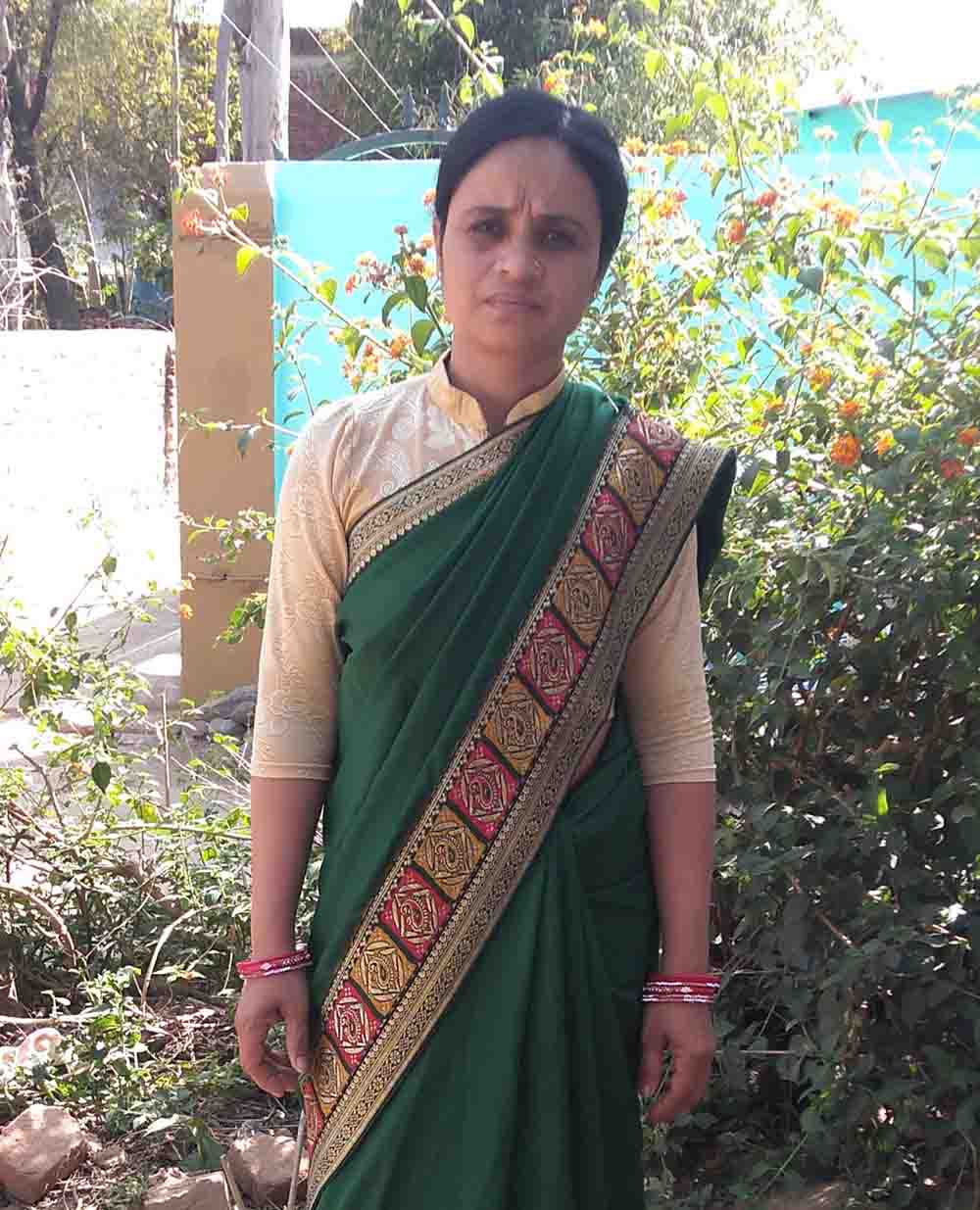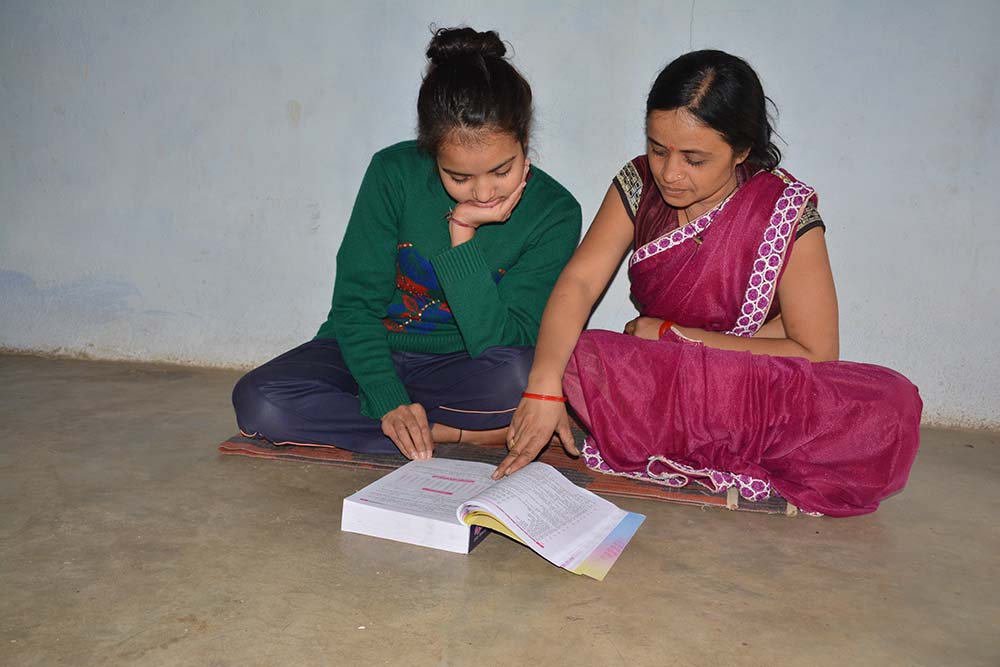Excerpted with permission from The First Responders, by the Reliance Foundation and the Observer Research Foundation, this article shares the story of Shipra Singh. Born in Lalpur, Shahdol district, Madhya Pradesh to farmers, Singh was compelled to marry early and widowed in 2011. This excerpt focuses on the incredible work done by Singh, especially during the COVID-19 pandemic.
Shipra's passion for learning was not dimmed by her personal difficulties. She managed, in 2020 at age 32, to complete her schooling and pass her class 12 examinations, all while working as a [Anganwadi] Karyakarta.
Her own experiences as a young mother and the seven years she spent as a social worker attached to the Anganwadi, kindled a passion for caring for malnourished children and counselling pregnant women to educate them about pre- and post-natal care. Her cause would not have been lost on the people of Shahdol, where intergenerational food security and imbalanced diets are matters of grave concern.
The National Family Health Survey - 5 (2019-21) found that in Shahdol, 57.3 percent of children between six and 59 months are anaemic. Similarly, over 56 percent of all women between the ages of 15-49 suffer from anaemia. Recognising the extent of the problem across the country, the government launched the 'Anemia Mukt Bharat' programme in 2018 in order to raise awareness about anemia, increase the availability of iron-folic acid tablets for girls and women, and use strategic communication to bring about a change in behaviour.
Reliance Foundation too, is helping combat malnutrition and anemia both in Shahdol and across India. The Foundation's unique nutrition garden model called the Reliance Nutrition Garden (RNG) has been instrumental in promoting balanced diets by making fresh green vegetables available at home. Indeed, according to the Food and Agricultural Organization (FAO), nutrition gardens are an efficient means of improving household 108 food security and eliminating micronutrient deficiencies. They provide direct access to a diverse range of nutritionally rich food in a cost-effective manner; and their use helps decrease the prevalence of anaemia in women.

Shipra's dedication to the improvement of nutrition in Shahdol led her to become a POSHAN Sakhi, i.e. a woman working to strengthen the nutritional status of women and children, as part of Reliance Foundation's programme to help establish RNGs across the district. As a Poshan Sakhi, Shipra motivated and provided hands-on assistance to households - that had been identified by health workers as being malnourished or anemic — to set up nutrition gardens in their front or back yards. While the Foundation provided the necessary technical support, training for the Poshan Sakhis, and inputs such as seeds and fertiliser, Shipra and her fellow Sakhis built public awareness about
the importance of nutrition gardens, mobilised households, and helped families establish and sustain their gardens. The Sakhis have also helped set up RNGs in Anganwadis and schools.
When the Covid-19 pandemic hit India in March 2020 and the country went into a nationwide lockdown, families were forced to keep inside their homes. Shipra—along with the help of the Integrated Child Development Services (ICDS), the local administration, and NGOs—led the malnutrition control programme by visiting individual households.
Her regular work was stalled and tasks that seemed routine became challenging and even life-threatening. 'Earlier we could easily supply protein powder and medicines to women and children. However, due to the pandemic, no one was stepping out of the house so it became extremely difficult to provide the necessary supplements and medical care,' she says. Despite being constantly exposed to the risk of contracting the virus, she continued to provide supplements in the form of protein powder, iron and calcium tablets to pregnant women. She also actively continued to counsel and guide villagers by helping some of them set up their own nutrition gardens and grow low-cost nutritious food in order to ensure a balanced diet during the pandemic. During the initial stages of lockdown, the nutrition gardens were especially 110 beneficial as the Anganwadis were shut down. In Shipra's village, they not only made people more self-sufficient but also provided them financial security.
Throughout the year, Reliance Foundation continued to sensitise and train the Poshan Sakhis about the benefits of vegetable consumption, nutrition gardens, balanced diets, and how to conduct advocacy around these issues. Always a quick learner and skilled communicator, Shipra made it her mission to convince families of the importance of RNGs. During the winter of 2020, she distributed seeds of seasonal vegetables such as carrot, beetroot, and radish.

She gave them lessons on the value of using iron cooking utensils, not over-boiling vegetables, and consuming iodine with salt, as well as nutrition-dense food like sprouts for breakfast during pregnancy. She also reminded families to utilise water efficiently and grow drought-resistant crops to reduce water scarcity. Her commitment to improving food security and maternal health could play a key role in breaking the intergenerational cycle of malnutrition in her district. Thanks to the interventions of Shipra and other Poshan Sakhis, over 4,500 households in Shahdol now have nutrition gardens in their yards.
Shipra has also been instrumental in helping protect her community from Covid-related risks. She supplied masks to every house in Lalpur, and educated people about the importance of sanitisers, masks, good hygiene, and physical distancing. 'I was very scared of the exposure to the virus, but we had to take the risk because if I did not step out, creating such awareness would not be possible.'
Her efforts to minimise the disruptions caused by the pandemic did not end there. She also coached aspirants for their entrance tests to the prestigious Jawahar Navodaya Vidyalayas-a network of central schools for talented students, predominantly from the rural districts and provided door-to-door counselling across Lalpur to make sure that students filled their admission forms. As a result of her efforts, four students got selected to Navodaya Vidyalayas.
Given her own experience of an interrupted education, Shipra feels strongly about the need for young girls to complete their schooling. During the pandemic, she ensured that the number of school dropouts was minimised by sensitising parents about the importance of educating girl children. Since Lalpur provides schooling only up to class eight, Shipra urged parents to send their daughters to schools in nearby Navodaya to continue their studies.
(Written by Shruti Jain. For more on Singh and the other women heroes from around the country, read: Jayashree B, Sunaina Kumar, Anirban Sarma, Vanita Sharma, and Shoba Suri, Eds., The First Responders: Women Who Led India Through the Pandemic.)